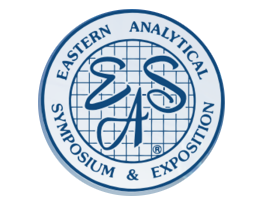Dr. Merlin K. L. Bicking, ACCTA, Inc., St. Paul, MN
Dr. Richard A. Henry, Consultant, State College, PA
COURSE DESCRIPTION
This intensive one-day short course is designed for all practitioners who want to learn more about modern HPLC column chemistry and how to select and properly operate columns in the reversed-phase (RP) mode. Despite enormous popularity of HPLC and UHPLC, users are still challenged to select the best column for their particular application and achieve the same accurate results using different systems.
A C18 column will not produce retention and separation in every situation. We will discuss the similarities and differences between the many available RP columns and provide advice on how to use that knowledge to improve separations while staying in the RP mode. The variables that affect retention and selectivity in RP mode will be explained. While stationary and mobile phase selection will receive primary attention, optimizing other key variables such as temperature and pore size may be needed for difficult separations. You will learn about new column particles and when one particle design might be preferred over another for a given application. Learn how instruments can have significant impact on separation results, especially when using UHPLC systems. More than ever, the column and instrument must be viewed as a system and be optimized together.
Our practical operating tips will include: column tool boxes for different sample types, sample injection techniques, gradient elution techniques, elevated temperature column operation, column storage and cleaning. Open discussion will be encouraged.
WHO SHOULD ATTEND
Practicing chromatographers who want to understand more about using columns in the reversed-phase mode will find this course to be useful. Some previous working knowledge and experience with HPLC is required, as this is not an introduction to HPLC course. Both routine analysts and method development staff will benefit from a better understanding of why all rugged RP methods share the same characteristics. Everyone should leave with valuable tips and become more productive in the HPLC lab.
TOPICS
1. Review of Fundamental Relationships
* Chemical properties that influence HPLC behavior
– Acid-base
– Polarity
– UV absorbance
* Relevant chromatography concepts and equations
2. Trends in Particle and Instrument Design
* Stationary phase particles
– Why silica?
– Porous vs. solid core
* Column configurations
– Trends in length, diameter, particle size
* HPLC vs. UHPLC
* How individual instrument components affect the chromatography
– Matching column with instrument
3. Reversed-Phase Mode
* Critical variables
– Stationary phase, mobile phase solvent, pH, temperature, pore-size
* Retention trends for each variable
* Sample variables
– Sample solvent, volume, and concentration
– Sample clean-up
* Isocratic elution
* Gradient elution
4. Column Selectivity in Reversed-Phase Mode
* Why columns behave differently
* How to measure column differences
* How to choose the best column
* What to do when C18 doesn’t work
– Alternative options and strategies
5. Upgrading Your LC Methods
* Converting isocratic methods to modern components
* Converting gradient methods to moderen components
* Suggestions for developing a fast rugged method
6. Practical Operating Tips and Best Practices
* System considerations
* Best operating practices
* Dealing with problems
– Cleaning/storing columns
– Chromatography-related issues
– Baselines, peak shape, etc.
* Other issues
7. Final Review and Questions
ABOUT THE INSTRUCTORS
Dr. Merlin K. L. Bicking is President, ACCTA, Inc. He has extensive analytical chemistry experience in academia, contract research, independent testing laboratories, consulting, and technical training, including stops at the State University of New York – Buffalo, Battelle Memorial Institute, Twin City Testing, ChromAfrica LLC, and ACCTA, Inc. His professional history includes development of two EPA methods, as well as numerous methods in other regulated and non-regulated industries. His publications and presentations cover a wide range of topics, including liquid chromatography theory, derivatization, method optimization, and the use of experimental design strategies in analytical chemistry. He also develops and presents technical training seminars for analytical laboratory staff, and has been teaching EAS short courses for over twenty years.
Dr. Richard A. Henry has built an extensive resume in HPLC and worked closely with many pioneers in the field at DuPont, Spectra-Physics, and Penn State University. While teaching instrumental analysis at Penn State, he founded Keystone Scientific to develop new HPLC column technology; Keystone later became part of Thermo-Fisher. He remains active teaching short courses and consulting with both suppliers and users of HPLC and UHPLC technology. His research interests include separation mechanisms and new developments in modern HPLC columns and instruments.

